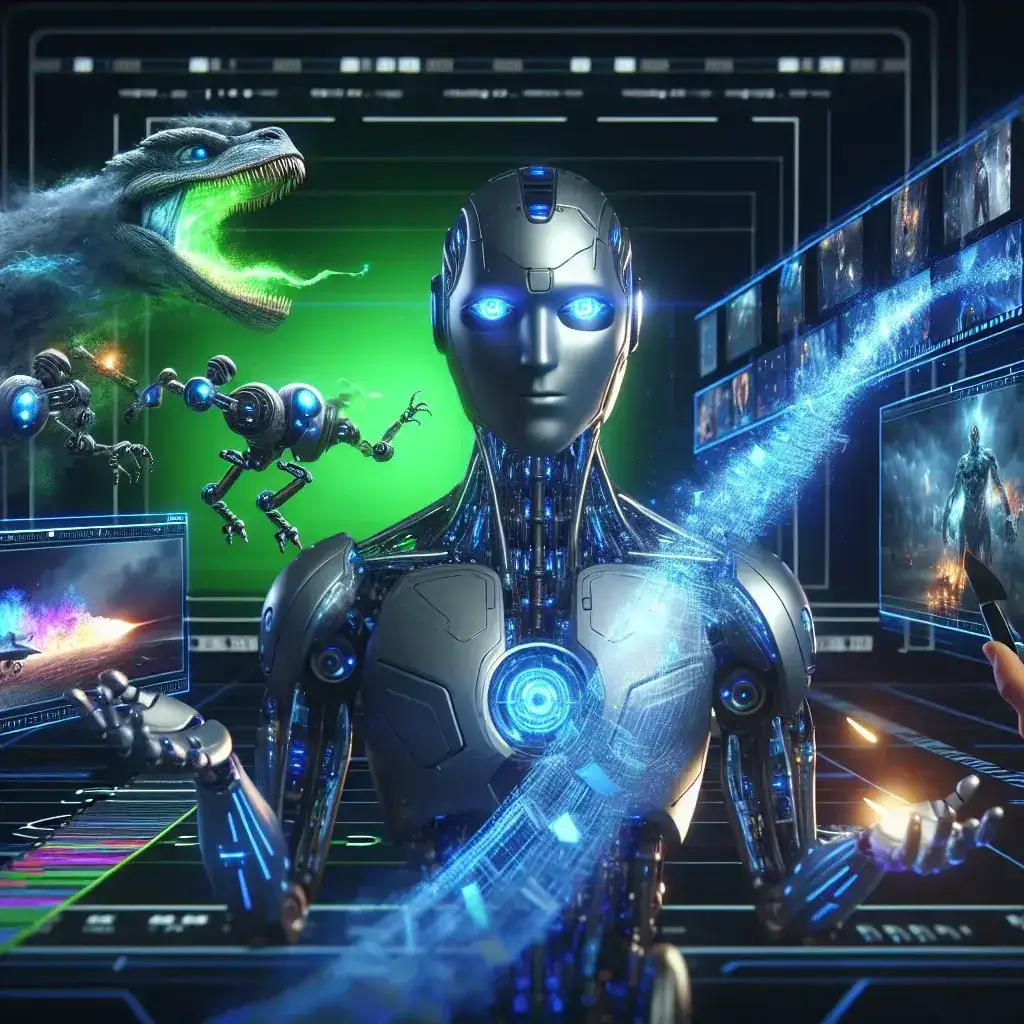Introduction
The film industry has always been at the forefront of technological innovation, and the advent of Artificial Intelligence (AI) has opened doors to unprecedented possibilities. From enhancing special effects to streamlining editing workflows, AI is fundamentally transforming how films are produced. In this article, we will explore the various ways AI is being used in film production, the benefits it brings, and its future implications.
The Role of AI in Special Effects
Special effects (SFX) have been an essential component of filmmaking, allowing creators to bring their wildest imaginations to life. AI is taking SFX to a new level by providing advanced tools that make the creation process more efficient and accessible.
1. Automated Visual Effects Generation
Traditionally, creating visual effects required a significant amount of time, skilled labor, and resources. However, AI algorithms can now analyze scenes and generate realistic visual effects automatically. This process not only reduces labor costs but also significantly speeds up production times.
Deep Learning Techniques
Deep learning models, particularly Generative Adversarial Networks (GANs), have gained popularity in generating realistic images and animations. By training on large datasets of images, these models can create lifelike textures, backgrounds, and characters that seamlessly integrate into live-action footage.
2. Enhancing CGI Characters
AI is playing a critical role in enhancing computer-generated imagery (CGI) characters. With advanced machine learning techniques, AI can help animators create more lifelike movements and expressions, making characters more relatable to audiences.
Facial Motion Capture
Facial motion capture technology utilizes AI to map an actor’s facial expressions to a CGI character in real time. This not only streamlines the animation process but also results in more nuanced performances that resonate with viewers.
Real-time rendering
AI-driven rendering engines can process vast amounts of data in real-time, allowing filmmakers to see how effects will look during production rather than waiting for lengthy post-production. This capability empowers directors to make immediate creative decisions.
AI in Video Editing
Editing is one of the most critical aspects of filmmaking, shaping the final narrative and pacing of a film. AI is now being employed in various ways to enhance editing processes and improve overall efficiency.
1. Automated Video Editing
AI-powered software can analyze hours of raw footage, identifying the best shots based on attributes like lighting, emotion, and composition. This process, known as automated video editing, accelerates the editing workflow and allows editors to focus on fine-tuning rather than searching for usable clips.
Content-Based Video Editing
Through machine learning, AI can analyze the content of videos, recognizing patterns and themes to suggest edits that align with a director’s vision. This includes finding the right sequence of events and transitions that enhance storytelling.
2. Smart Tagging and Organization
With the vast amount of footage generated during filming, organizing and tagging content can be overwhelming. AI tools can automatically categorize and tag footage based on content type, scene, or even emotions conveyed, making it easier for editors to locate the clips they need.
Visual Recognition
Visual recognition technology allows AI to identify and categorize objects, scenes, and even people in video footage. This means that editors can quickly search for specific elements, such as ‘cityscapes’ or ‘happy moments,’ without manually sifting through hundreds of files.
The Benefits of AI in Film Production
Integrating AI into film production offers numerous advantages, including:
- Cost Efficiency: Reduces the need for extensive manpower, allowing smaller production teams to create high-quality content.
- Faster Production: Streamlines workflows in both special effects and editing, leading to quicker turnaround times.
- Enhanced Creativity: Provides filmmakers with new tools and possibilities to enhance their creative vision, enabling them to take risks and innovate.
- Improved Accuracy: AI’s analytical capabilities provide precise insights, ensuring that visual effects and edits align with the desired narrative.
Challenges and Considerations
While the advantages of AI in film production are significant, there are also challenges that filmmakers must navigate:
1. Ethical Concerns
As AI-generated content becomes more advanced, concerns regarding copyright issues and the ownership of AI-created work have arisen. Filmmakers need to ensure that they are not infringing on intellectual property rights.
2. Dependence on Technology
As with any technology, there is a risk of over-reliance on AI tools. Filmmakers must strike a balance between leveraging AI capabilities and maintaining their creative instincts. Human creativity remains an irreplaceable element in storytelling.
3. Training and Adaptation
For traditional filmmakers, adapting to AI technology requires learning new skills and tools. The industry must invest in training and supporting professionals to navigate the evolving landscape of film production.
The Future of AI in Film Production
The future of AI in film production looks promising, with continuous advancements expected in various areas:
1. Integration with Virtual Reality and Augmented Reality
As virtual reality (VR) and augmented reality (AR) gain traction in entertainment, AI will play a crucial role in creating immersive experiences that merge real-world and digital elements seamlessly.
2. Personalized Content Creation
AI could pave the way for personalized filmmaking, where viewers are offered custom experiences based on their preferences and choices, leading to a unique storytelling format.
3. Enhanced Collaboration Tools
AI tools can enhance collaboration among creative teams by providing insights and recommendations that align with a shared vision, thereby improving the overall workflow and output quality.
Conclusion
As AI continues to evolve, its potential to reshape film production is undeniable. By enhancing special effects and streamlining video editing, AI is not only helping filmmakers create visually stunning content but is also changing the way stories are told. While challenges remain, embracing AI can empower the film industry to unlock new levels of creativity and innovation, paving the way for the future of cinematic storytelling.

